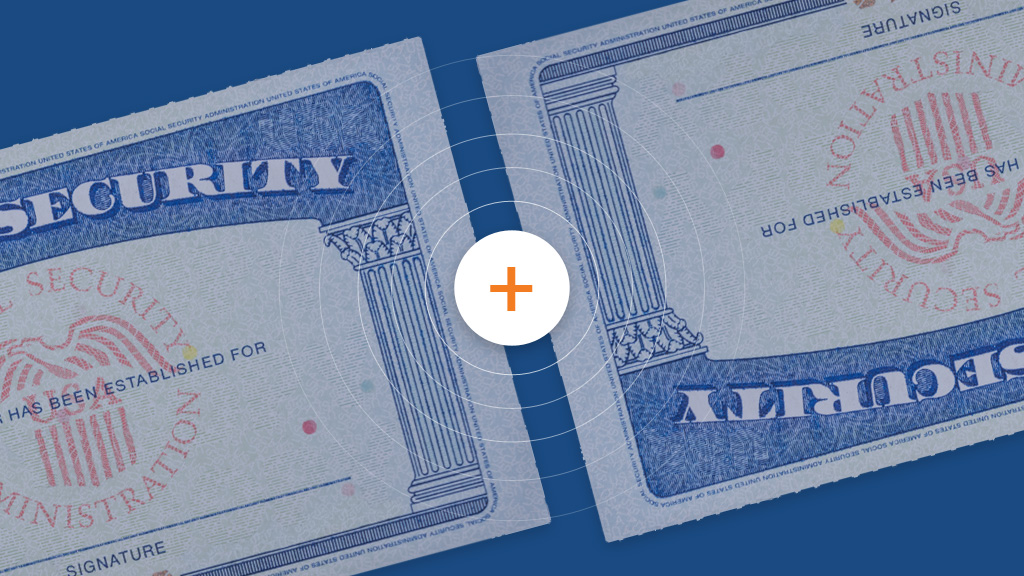It Takes Two to Tango with Social Security

Spouses grapple with many financial decisions throughout their married lives. Bigger diamond engagement ring or house down payment? One child or two? Take that job for more pay but lots of business travel?
Few spouses I’ve met, however, consider filing for Social Security benefits in the same category – a big decision with sizeable consequences. Even some advisors I’ve worked with for years still tell me that Social Security is straightforward and hardly worth getting both spouses on the phone or in the office to discuss.
Big mistake.
Yes, someone’s own retirement benefit amount will be the highest when they turn 70. Yes, their benefit will be the lowest if they decide to file for benefits as early as possible at 62 for retirement benefits or 52 for disability benefits.
But that’s not how you maximize Social Security for married couples. Failing to plan together on when to file can potentially leave thousands of dollars on the table.
Make Sure You Look at All the Factors
First, you need to work with a financial advisor who examines the situation for you and your spouse from all angles because no two situations are identical.
- People have different birthdates, and the Social Security Administration uses birthdates as a major determining factor for calculating an individual’s full retirement age (FRA) and benefits. Gaps in age, work history, and income between spouses affect Social Security decisions.
- Two people will have different work histories and, in turn, different primary insurance amounts (PIAs) at their FRA. The PIA is the benefit you receive for not taking benefits early or delaying them until age 70. (Here’s how that is calculated.)
- Single? Married? Divorced? Widowed? Marital status affects benefits. Death affects survivors’ benefits.
- How long will you live? 65? 75? 90? Of course, this is usually unpredictable. But you need to be aware that life expectancy will change the total in Social Security benefits you and a spouse can expect over your lifetimes.
Here’s a Dive Deep into the Sea of Social Security
Recently, I was working with an advisor who was struggling with the case of a couple. The husband had filed for Social Security benefits in 2019. The wife, age 64, had stopped working but hadn’t filed for Social Security.
The question was could she:
- Take a spousal benefit based on her husband’s benefit for the next 3+ years…
- Then switch to her own benefit at age (70) since it will more than likely be a higher amount after accruing Delayed Retirement Credits.
The filing strategy the advisor thought applied is called a restricted application. However, due to the Bipartisan Budget Act of 2015, the wife isn’t eligible to file a restricted application because she hadn’t turned 62 before Jan. 1, 2016.
I was able to help the advisor get the answer – and potentially prevent his clients from doing something that would cost them in the long run.
In this case, the wife isn’t entitled to a spousal benefit on her husband’s record because her own benefit is more than 50% of her husband’s Primary Insurance Amount (PIA).
The Social Security planning tool I use evaluated all the possible filing scenarios and:
- Arrayed the options available to the wife.
- Pointed clearly to the month and year she should file instantly.
- Charted month by month, year by year, the benefits they could expect and after one spouse dies.
The result was that the optimal filing age for the wife, in this case, is 65. That’s two years before her full retirement age. We suggested she take 24 months’ worth of reduced benefits to maximize the combined benefits she and her husband would get. If the wife lives longer than her husband, she will then be eligible for survivor benefits on her husband’s record.
The Big Reveal Can Surprise Everyone
This is one example – I admit, a complex one – of a couple’s strategy. This case highlights the importance of getting a wide-angle view of all the options under the more than 2,700 Social Security rules.
Waiting until age 70 isn’t always the answer to maximizing Social Security benefits. Every case is different and unique. Make sure you get the full picture.
Read the original post on TheStreet here.
Monthly insights from our Chief Growth Officer, Jack Sharry
Get exclusive insights and interviews from around the industry

 By
By 




